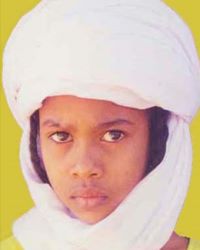Rizeigat in Sudan

Photo Source:
Khalid Al Rizeigy
|
Send Joshua Project a map of this people group.
|
| People Name: | Rizeigat |
| Country: | Sudan |
| 10/40 Window: | Yes |
| Population: | 429,000 |
| World Population: | 429,000 |
| Primary Language: | Arabic, Sudanese |
| Primary Religion: | Islam |
| Christian Adherents: | 0.00 % |
| Evangelicals: | 0.00 % |
| Scripture: | New Testament |
| Ministry Resources: | Yes |
| Jesus Film: | Yes |
| Audio Recordings: | Yes |
| People Cluster: | Arab, Sudan |
| Affinity Bloc: | Arab World |
| Progress Level: |
|
Introduction / History
The Rizeigat are an Arab Muslim tribe of the nomadic Bedouin Baggara living in Sudan's Darfur region. They are the largest and most powerful of the Arabs in Darfur.
What Are Their Lives Like?
Like most nomads, their identity and livelihoods are linked closely to their animals. Those in the northern parts of Sudan usually herd camels, while those farther south raise cattle. Although most Rizeigat are nomadic, some live in farming communities or towns. They are becoming aware that their lack of education has resulted in a lack of influence. Many now feel pressured to convert to a sedentary lifestyle in order to access education.
What Are Their Beliefs?
Rizeigats are entirely Muslim.
What Are Their Needs?
Access to the Darfur area by outsiders is restricted. Additionally, nomads are difficult to build relationships with for anyone who doesn't travel with them.
Prayer Points
Pray for peace throughout Sudan, especially in the dangerous Darfur region.Pray for the Rizeigat tribe, especially the youth, to discover the availability of scriptures, the JESUS Film, and other Bible resources on the internet.There are probably very few followers of Jesus today among the Rizeigat tribe. However, continue praying that many will soon come to saving faith in Christ.Pray for teachers and pastors to disciple them.